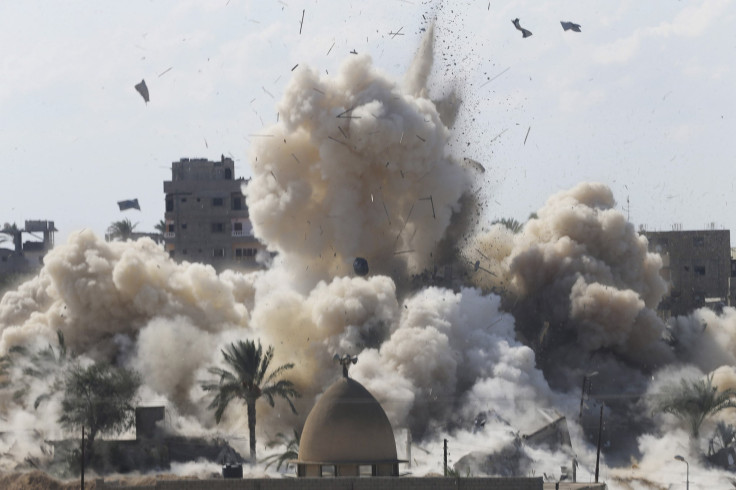Egypt Begins Construction Of Buffer Zone Along Gaza Border, Demolishes Houses In Sinai

Egypt began demolishing houses along its 8-mile long border with the Gaza Strip on Wednesday as a part of its planned buffer zone to prevent smuggling of weapons from the Palestinian enclave, according to media reports. The demolition reportedly began a day after hundreds of homes in the region were evacuated.
Egyptian authorities have planned to construct a 500-meter deep buffer zone, which will also include water-filled trenches to prevent tunneling from the Gaza Strip. The demolition work began after nearly 10,000 residents living along the border were asked to leave, according to media reports.
The move comes just days after over 30 Egyptian soldiers were killed in northern Sinai in one of the deadliest attacks on the country's security forces since the ouster of Mohammed Morsi in 2013. Egyptian authorities have reportedly blamed Hamas for Friday’s attacks and have alleged that the Islamist group is actively aiding Sinai-based militants by providing arms and ammunition.
Hamas has consistently denied the allegations and has opposed the construction of the buffer zone, alleging that such a move would “support the Israeli blockade of Gaza’s border,” according to local media reports.
Compensation has reportedly been offered to the displaced residents, except those whose homes are found to contain smuggling tunnels. The tunnels, constructed by Gaza-based armed groups, have played a vital role in the economy of the Palestinian enclave, which has been under a blockade imposed by Israel in 2007.
Following the attacks, Egypt closed the Rafah border crossing, which is the only route to Gaza not controlled by Israel. Egyptian President Abdul Fattah al-Sisi also issued a decree on Monday, placing public facilities like power stations and roads under the protection of the military -- a move criticized by several human rights activists as an excuse to bring the army back on the streets, according to media reports.
Although no group claimed responsibility for Friday’s attacks, Egyptian authorities reportedly believe it to be the work of Ansar Bayt al-Maqdis, which has carried out similar attacks in the past.
© Copyright IBTimes 2025. All rights reserved.






















